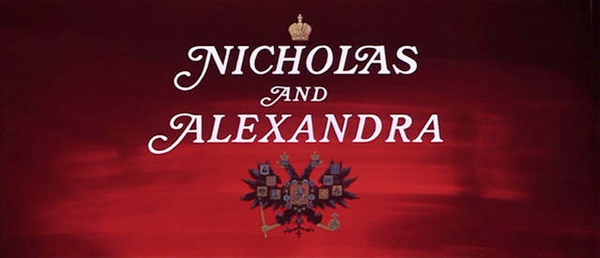

![]()
![]()
|
GILDED INERTIA Robert K. Massie’s Nicholas and Alexandra is history wrapped in romanticism and hemophilia. The latter ingredient one of the crucial factors in the Tsar’s inability to control events conspiring to set in motion Russia’s bloody revolution; his son’s disease eclipsed warnings of populist rebellion, helped along by his fervency for his intrusive, demanding wife who, though loving him and her children completely, further entrapped the family via her own myopia and fatal dependence on mystic bastard Rasputin. Massie’s chronicle often reads like a sympathetic novel—we get so caught up in Nicholas’s travails we’re virtually begging him to wake up and do something. Massie rescues his objectivity when portraying Nicholas as a weakling with scant intellectual prowess, a failure at governance and military undertakings—most embarrassing the humiliation of being defeated by Japan—and for much too long apathetic about the growing plight of ordinary Russians. Curiously, having presented these facts and the Tsar’s strident claim espoused defiantly at his coronation that it’s his God-given right to rule as heir to the three hundred year reign of the House of Romanov, his virulent anti-Semitism and his eager despotic dispatches to crush civil discord, Massie’s sympathy card returns as the Tsar is by and by shown as an even more loving husband and caring father about whom, including his daughters and the bleeder, we hesitate to see harmed. Avoidance of such for Tsarina is highly noticeable. Franklin Schaffner’s movie version, with the exception of the ending, reverses the book’s various sentiments: we watch and think, even as we flinch at the climax, “They deserve their fate, guilty of arrogance, sponginess, bungling, willful isolation and callosity.” Stodgy, lethargic, inept as spectacle, the movie wants to be a loyalist’s Doctor Zhivago—telling us the “other side” of the story. (It even has the inevitable award-winning David Lean look, albeit unbreathably gilded, accessorized and draped.) All poses, uniforms and manicured beard, Michael Jayston resembles Nicholas and sounds like Hal the Computer; as Alix, Janet Suzman’s regal hardness suggests a before-Glenn-Close-arrived version of Close; Tom Baker’s Rasputin foreshadows, without their juice, the 90s comic book movie villains. The wasted extras include Laurence Olivier, Irene Worth, Harry Andrews, Curt Jürgens, Michael Redgrave, Jack Hawkins, Alexander Knox, John Wood, Ian Holm, Guy Rolfe, Eric Porter, Vivian Pickles, Brian Cox, Diana Quick and John McEnery. James Goldman wrote the luggy script. Production designer John Box also served as second unit director. In Panavision, with 70mm blowup. (Opening 2/2/1972 at the Palace, running 16 weeks.) Oscar wins for art direction (headed by Box), costume design by Yvonne Blake and Antonio Castillo; nominated for best picture, actress, cinematography (Freddie Young), musical score (Rodney Bennett). 
Text COPYRIGHT © 2001 (Revised 7/2019) RALPH BENNER All Rights Reserved. |